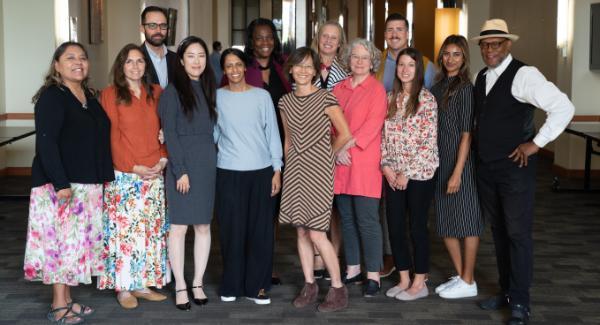From Grants to Global Impact: UMB’s Global Learning for Health Equity Network Expands its Outreach
January 24, 2024 Mary Therese Phelan
A nearly $1 million grant builds upon the belief that interventions designed to eliminate health inequities in other countries may also work in local communities in the U.S.
Researchers at Montana State University will learn from researchers in Kenya about policies in the African country addressing poor sexual and reproductive health outcomes among adolescents in rural communities.
The Athens (Ohio) City-County Health Department will explore how other countries support older adults as Athens strives to make the region a great place to grow old.
The University of Maryland School of Nursing (UMSON) seeks to learn from the Evangelical Church of Tanzania on how to improve palliative care services in Baltimore.
Public health officials in Washtenaw County, Mich., will share with India their research on how women experiencing personal and systematic barriers to well-being achieve access to health care, education for their children, and employment.
These are just some of the connections created and projects underway as a result of the expansion of the Global Learning for Health Equity Network (GLHEN), through a grant received by the University of Maryland, Baltimore from the Robert Wood Johnson Foundation. The nearly $1 million grant was initiated in fall 2022 and runs through September 2025.
GLHEN, built on the belief that interventions designed to eliminate health inequities in other countries may also work in local communities in the United States, aims to build a framework that will support the adaptation of health equity interventions from overseas to U.S. settings with a strong focus on community engagement and bidirectional learning, which emphasizes mutual learning, co-development, and academic partnerships.
The United States continues to lag behind other high-income countries on significant health indicators, including infant mortality, chronic disease, and overall mortality, largely due to health and health care inequities. Additionally, societally imposed norms and historic systemic oppression have resulted in widespread inequities throughout the country that have led to higher health care costs, a decrease in overall positive health outcomes in marginalized populations, and premature deaths.
GLHEN is housed at UMB with collaborating partners/learning communities that include the Athens City-County Health Department; the Henry Ford Health System in Detroit; the Albert Einstein College of Medicine/Montefiore Medical Center in New York; and the Navajo Nation Indian Reservation in the Four Corners region of the Southwest. A shared vision along with mutual goals and metrics are key components of GLHEN, which utilizes a learning systems action model that begins with an internal and external scan and then designs, tests, evaluates, and adjusts its framework for research and action.